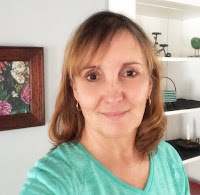The Mysterious
Case of the Missing (or Gratuitous) Question Mark
 Missing Question
Marks
Missing Question
Marks
Everyone knows that
you should put a question mark after a question. Sometimes, however, it simply gets forgotten. This happens more frequently in the following
situations, so keep an eye out for them, and be sure to end them with a
question mark, as shown below.
-Long and convoluted questions
What is the best time of year—and I’m
talking about a normal year, not like that crazy one we had in 2012, with
hurricanes in winter and snow in July—for mushroom hunting in France?
-Questions with downward intonation, making them feel more like statements.
Do you prefer red or blue?
We aren’t in Kansas anymore, are we?
-Questions that were statements in your
first draft, and which
you since reworded. It’s easy to forget
to switch the corresponding punctuation.
One way to help
catch these missing marks is to read aloud.
This is especially useful in discovering overly long or complicated
questions (and sentences). Train
yourself so that when you see the beginning of a question, you automatically
look ahead to see if you have the required punctuation.
Gratuitous
Question Marks
Perhaps even more
disturbing than missing question marks are question marks where they don't
belong. Just as you've trained yourself
to look for questions and make sure you have the accompanying punctuation,
train yourself to stop when you see a question mark, go back, and decide
whether or not you need it. As you
revise, look for the following common places to find gratuitous question marks,
and make sure that you cut them out, as shown below.
-“Wonder” statements
I wonder if bears get hot in summer.
I often ask myself where my life is
going.
I was wondering what time I could come by
for a consultation.
-Statements of uncertainty.
I don’t know where the president is.
I’m not sure if you’re supposed to add
butter or flour first.
-Commands that feel like questions.
Tell me where you stashed the money.
Guess who I saw today in the supermarket.*
Let me know if you need anything.
-Reported and indirect questions.
The cop asked us what we were doing out so
late at night.
The question is whether or not we should
open a new branch office in Detroit.
I need to know who that man is.
None of these are
questions, grammatically, even if they have a sort of question feel. They should thus not take question marks.
If you really
want a question mark, sometimes you can rephrase.
I wonder: do bears get hot in summer?
I’m not
sure: are you supposed to add butter or
flour first?
The question
is: should we open a new branch office
in Detroit?
*Gray Areas:
1) “Guess what?”
This is debatable. Some experts
say that it’s a command, and should always be punctuated as such. Others say that it depends on the
intention. If your character is just
excited, and doesn’t really expect someone to guess, stick with the more
correct period (or judiciously placed exclamation point). If your character pauses for someone to
actually guess, demanding a response like a regular question, consider breaking
the rule and using a question mark.
2) Polite requests. “Would you shut the door?” vs “Would you shut
the door.” Again, many experts claim
that this is actually a command, not a question, and thus should be punctuated
with a period. Others say that,
grammatically, it’s a question, and should thus take a question mark. Very long, complicated requests like this do
well with periods. With shorter requests,
however, you’re less likely to jar your reader if you simply use a question
mark. Now if you want to jar your reader, that’s a whole other story, and a great
use of a period. See below.
Punctuation can
help your subtlety
Example 1:
You have a scene
where one character says, “Would you come in and shut the door.”
Now look at the
same scene punctuated differently:
“Would you come in and shut the door?”
See the
difference? Without actually saying so,
you’ve indicated in the first scene that your character is serious, or the
situation’s serious, or he’s the type of person who never actually asks, but
only demands.
Example 2:
“John isn’t
leaving, is he?”
Vs
“John isn’t
leaving, is he.”
In the first
scene, your character is worried because she hasn’t had the chance to say
goodbye yet. In the second, the shady punctuation
hints that your character has just discovered that John isn’t leaving after
all, and he’s disappointed. You could
also write this:
“John isn’t
leaving, is he?” Lionel asked dejectedly.
But which one is
more subtle?
Other Question Marks
Of course,
don’t forget that you can make statements into questions just by adding a
question mark, and it’s completely legal.
We’re eating
deer?
You stood in the
rain all night?
Just don’t do it
when you don’t mean to: You deserve to
have beautiful glowing skin? Try our new
product line.
You know the rules. Now train your editing eyes to see the errors.
For more:










.JPG)





